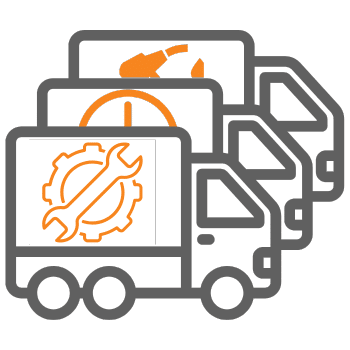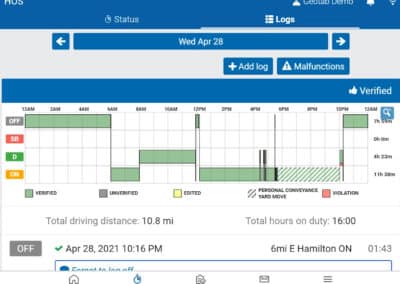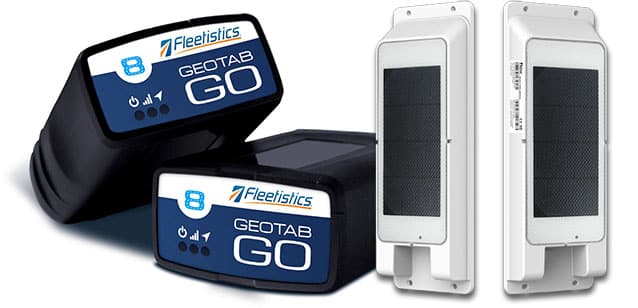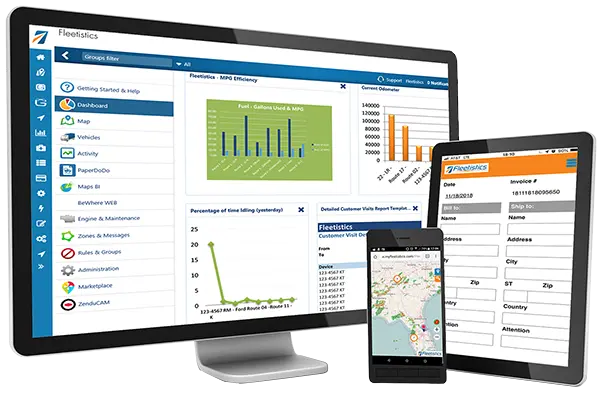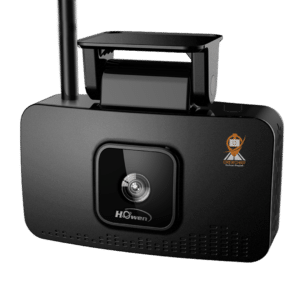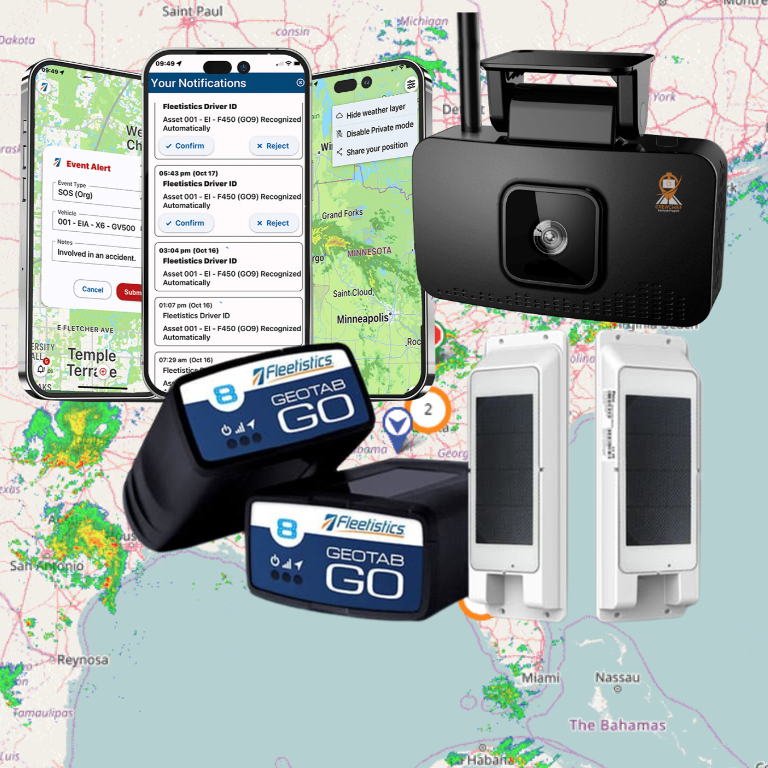Tampa GPS Tracking for Enterprise Fleets: Enhancing Efficiency and Security
In the bustling city of Tampa, managing an enterprise fleet can be a complex task. From ensuring timely deliveries to maintaining the safety of drivers, the challenges are numerous. This is where GPS tracking technology comes into play, revolutionizing fleet management by offering real-time insights and enhanced control. With the dynamic environment of Tampa’s roads and the high demand for efficient logistics, integrating advanced technologies is not just a luxury but a necessity.
In this article, Fleetistics will delve into the benefits of GPS tracking, the role of dashcams, and how these technologies can streamline fleet management for enterprises in Tampa. We will explore practical applications and provide insights into choosing the right system.
The Importance of GPS Tracking in Fleet Management
GPS tracking is more than just knowing the location of your vehicles. It’s about leveraging data to optimize routes, reduce fuel costs, and improve overall efficiency. In a city like Tampa, where traffic conditions can change rapidly, having real-time information at your fingertips can make a significant difference in operational success. Here are some key benefits of GPS tracking:
Real-Time Location Tracking
Real-time location tracking allows fleet managers to monitor the precise location of each vehicle in the fleet. This feature is crucial for:
- Enhanced Route Planning: Real-time data helps in planning the most efficient routes, reducing travel time and fuel consumption. By analyzing traffic patterns and congestion points, managers can make informed decisions to avoid delays.
- Quick Response: In case of emergencies or unexpected situations, managers can quickly locate the nearest vehicle and redirect it as needed. This capability is vital for maintaining service quality and handling urgent deliveries.
- Theft Recovery: GPS tracking aids in the swift recovery of stolen vehicles, minimizing losses. With instant location updates, law enforcement can be notified immediately, increasing the chances of vehicle recovery.
Improved Driver Behavior
With GPS tracking, you can monitor driver behavior patterns, such as speeding, harsh braking, and idling. This information is vital for:
- Safety: Addressing unsafe driving habits and coaching drivers reduces the risk of accidents. By identifying risky behaviors, fleet managers can implement training programs to promote safer driving. Recognizing that drivers and vehicles are a company’s most valuable assets underscores the importance of prioritizing their safety and well-being. GPS Tracking can help companies achieve their goal of bringing all drivers home safely every day while maximizing the value of these assets.
- Cost Savings: Encouraging better driving habits can lead to significant savings on fuel and maintenance costs. Efficient driving reduces wear and tear on vehicles, extending their lifespan and reducing repair costs.
- Compliance: Ensuring that drivers adhere to company policies and regulatory requirements. GPS tracking can help verify adherence to legal driving hours and other compliance metrics.
Regulatory Compliance
Regulatory compliance is the process of complying with applicable laws, regulations, policies and procedures, standards, and the other rules issued by governments and regulatory bodies like FINRA, SEC, NERC, FDA, etc.
- Electronic Logging Devices (ELDs): For fleets that operate in the trucking industry, telematics can facilitate compliance with ELD regulations, simplifying hours-of-service tracking and reducing the risk of fines.
- Reporting and Analytics: Comprehensive data collection allows for detailed reporting on various metrics, helping companies stay compliant with industry standards and regulations.
- Driver Vehicle Inspection Reporting (DVIR): DVIR is a crucial component of regulatory compliance for fleet management, particularly in the transportation industry. This process ensures that vehicles are safe to operate and meet all necessary standards before and after each trip.
Enhanced Customer Service
GPS tracking improves customer service by providing accurate delivery estimates and real-time updates. Customers can be informed about the status of their deliveries, leading to higher satisfaction rates. In an age where customer expectations are high, providing precise and timely information can set your business apart from competitors.
The Role of Dashcams in Fleet Management
While GPS tracking provides location data, the addition of dashcams offers visual evidence of what happens on the road. This combination of technologies delivers a comprehensive view of fleet operations. Here’s how dashcams complement GPS tracking:
Accident Evidence
Dashcams record the road ahead and the driver’s actions, providing crucial evidence in the event of an accident. This footage can be used to:
- Determine Fault: Clear video evidence helps in determining who is at fault, potentially reducing legal costs and insurance claims. This can expedite the resolution process with insurance companies and legal entities.
- Protect Drivers: Dashcam footage can exonerate drivers from false claims, protecting their reputation and the company’s assets. This protection is essential in safeguarding against fraudulent claims and ensuring fair treatment.
Training Tool
Dashcam footage serves as an excellent training tool for new drivers. Managers can review real-life scenarios to provide constructive feedback and improve driving skills. By analyzing actual events, training can be more relevant and impactful.
- Scenario Analysis: Reviewing footage of near-misses or traffic violations can help drivers understand the consequences of their actions. This analysis can lead to the development of better driving strategies.
- Ongoing Education: Continuous access to real-world examples ensures that training is an ongoing process, keeping safety and efficiency at the forefront.
For more information go to https://fleetistics.com/fleet-safety-solution/crewchief-dashcam/.
Monitoring Compliance
Dashcams help ensure that drivers comply with company policies and road regulations. For example, they can confirm that drivers are not using mobile phones while driving or adhering to seatbelt rules. This monitoring can be critical in maintaining a culture of safety and accountability.
- Behavior Verification: Dashcams provide indisputable evidence of driver behavior, which can be used to enforce company policies effectively. This verification can lead to consistent policy adherence across the fleet.
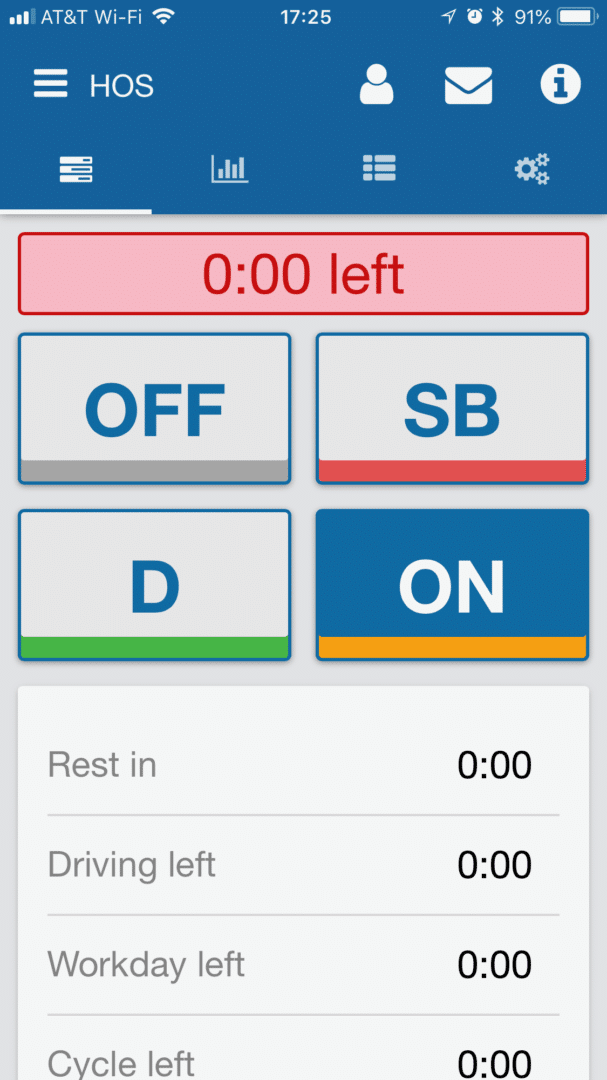
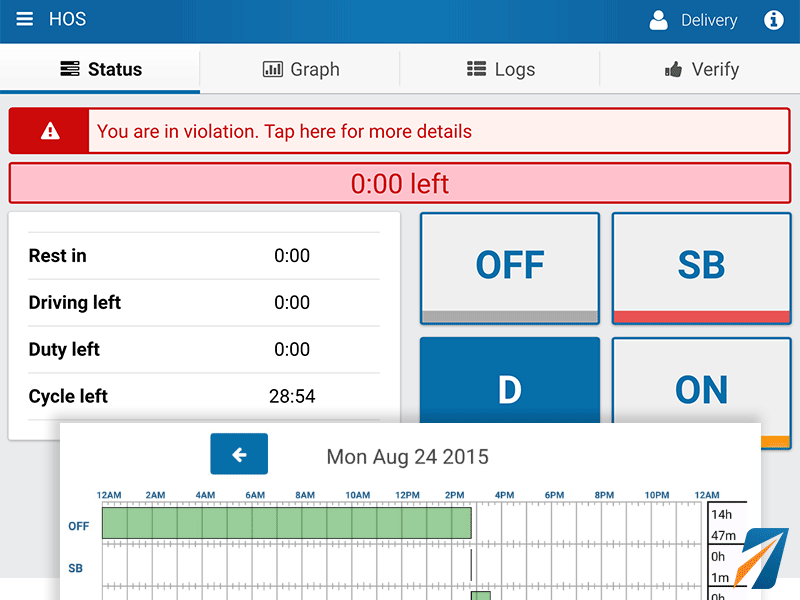

Integrating GPS Tracking and Dashcams
Combining GPS tracking with dashcams creates a powerful fleet management system. Here’s how these technologies can work together:
Comprehensive Data Analysis
Integrating GPS data with dashcam footage allows for a comprehensive analysis of driving behavior and route efficiency. This holistic view enables fleet managers to make informed decisions that enhance overall performance. By correlating ldocation data with visual evidence, managers can gain deeper insights into operational challenges.
- Behavioral Insights: Understanding the context behind driving behaviors can lead to more targeted interventions. For instance, identifying specific areas where drivers frequently speed can help in implementing location-specific training.
- Efficiency Tracking: Analyzing route efficiency in conjunction with driver behavior can reveal opportunities for optimization, leading to better resource utilization.
Real-Time Alerts
Fleet managers can set up real-time alerts for specific events, such as harsh braking or sudden lane changes. These alerts can be linked to dashcam footage, providing immediate context and allowing for quick corrective actions. This feature enhances proactive management and immediate response.
- Immediate Intervention: Real-time alerts enable managers to address issues as they occur, preventing potential accidents or operational disruptions. Quick intervention can mitigate risks and improve overall safety.
- Contextual Analysis: Linking alerts to video footage provides context, helping managers understand the circumstances leading to specific events. This analysis can lead to more effective resolutions and preventative measures.
Streamlined Reporting
Combining GPS tracking and dashcams simplifies reporting. Managers can generate detailed scorecard reports that include location data, video evidence, and driver behavior insights, all in one place. This streamlined approach saves time and improves accuracy, making it easier to track performance and compliance.
- Integrated Reports: Comprehensive reports that combine multiple data sources provide a clearer picture of fleet operations. This integration can lead to more actionable insights and better decision-making.
- Efficiency Gains: Simplified reporting processes reduce administrative burdens, allowing managers to focus on strategic initiatives rather than data compilation. By scheduling these reports to be emailed, managers and supervisors can be held accountable for their drivers.
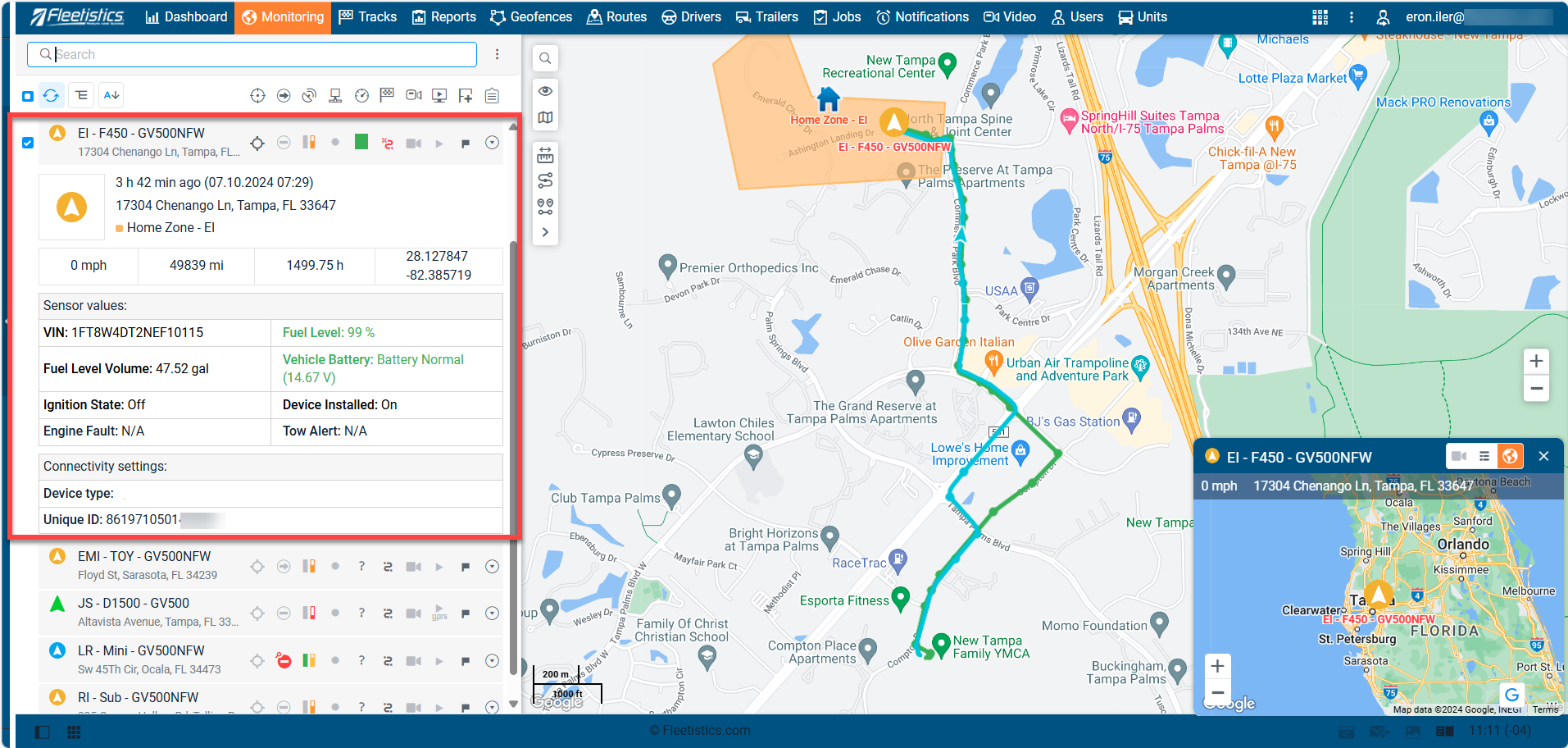
Choosing the Right GPS Tracking System for Your Fleet
When selecting a GPS tracking system for your enterprise fleet in Tampa, consider the following factors:
Scalability
Ensure that the system can scale with your business. As your fleet grows, the GPS tracking system should be able to accommodate additional vehicles without compromising performance. Scalability ensures long-term viability and cost-effectiveness.
- Future-Proofing: Investing in a scalable system protects against future growth challenges. By planning for expansion, businesses can avoid the need for costly system overhauls.
- Adaptability: A scalable system can adapt to changing business needs, providing flexibility in operations.
User-Friendly Interface
A user-friendly interface is essential for efficient fleet management. Look for systems that offer intuitive dashboards and easy-to-use features. Ease of use reduces the learning curve and enhances productivity.
- Training Efficiency: An intuitive interface minimizes the time required for training, allowing staff to become proficient quickly. This efficiency can lead to faster implementation and better adoption.
- Operational Simplicity: A simple, clear interface ensures that managers can access the information they need without unnecessary complexity.
Customizable Alerts
Customizable alerts allow you to set specific parameters based on your fleet’s needs. This flexibility ensures that you are notified of critical events without being overwhelmed by unnecessary alerts. Tailored alerts provide relevant information, enhancing decision-making.
- Precision Monitoring: Custom alerts enable precise monitoring of key performance indicators, ensuring that managers can focus on what matters most. This precision leads to more effective management.
- Reduced Noise: By filtering out non-essential alerts, managers can concentrate on critical issues, improving response times and operational focus.
Integration Capabilities
Choose a GPS tracking system that can seamlessly integrate with other technologies, such as dashcams and fleet management software. This integration enhances functionality and provides a unified view of your fleet operations. Compatibility ensures that all components work together harmoniously.
- Enhanced Functionality: Integrated systems offer more comprehensive features, leading to better operational control. This functionality can result in improved efficiency and effectiveness.
- Unified Management: A unified platform simplifies management, reducing the need for multiple systems and ensuring consistency in data and reporting.
Conclusion
GPS tracking and dashcams are essential tools for managing enterprise fleets in Tampa. These technologies provide real-time insights, improve driver behavior, and enhance overall efficiency. By choosing the right system and integrating it effectively, fleet managers can overcome challenges and achieve their operational goals.
Investing in GPS tracking and dashcams not only streamlines fleet management but also ensures the safety of drivers and the satisfaction of customers. Embrace these technologies to take your fleet management to the next level, ensuring your business remains competitive and efficient in the vibrant city of Tampa.
For a real world case study please go to https://fleetistics.com/gps-tracking-and-telematics/orkin-pest-control-case-study/.
